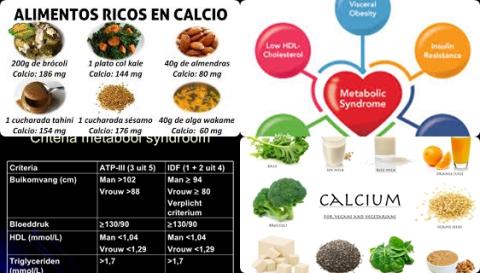
Objectives:
Epidemiological investigations evaluating the association of dietary calcium intake with metabolic syndrome (MetS) risk have yielded controversial results. Therefore, this review article has been conducted.
Does dietary calcium intake reduce risk of metabolic syndrome?
Study design:
This review article included a total 15 cross-sectional studies for dietary calcium intake.
Results and conclusions:
The investigators found for the highest versus lowest category of dietary calcium intake, a significantly reduced risk of 20% [combined OR = 0.80, 95% CI = 0.70 to 0.91] for metabolic syndrome.
The investigators found in dose-response analysis, a non-linear relationship between dietary intake of calcium and risk of metabolic syndrome [p non-linearity > 0.001].
The investigators found 280 mg/d dietary calcium intake significantly reduced risk of metabolic syndrome with 13% [OR = 0.87, 95% CI = 0.82 to 0.93].
The investigators concluded 280 mg/d dietary calcium intake may reduce risk of metabolic syndrome. May reduce because this review article only included cross-sectional studies and no cohort studies. Therefore, these findings should need to be further confirmed by larger prospective cohort studies.
Original title:
Dietary calcium intake and the risk of metabolic syndrome: evidence from observational studies by Cheng L, Hu D and Jiang W.
Link:
https://www.ncbi.nlm.nih.gov/pubmed/30846011
Additional information of El Mondo:
Find more information/studies on calcium and obesity/overweight right here.